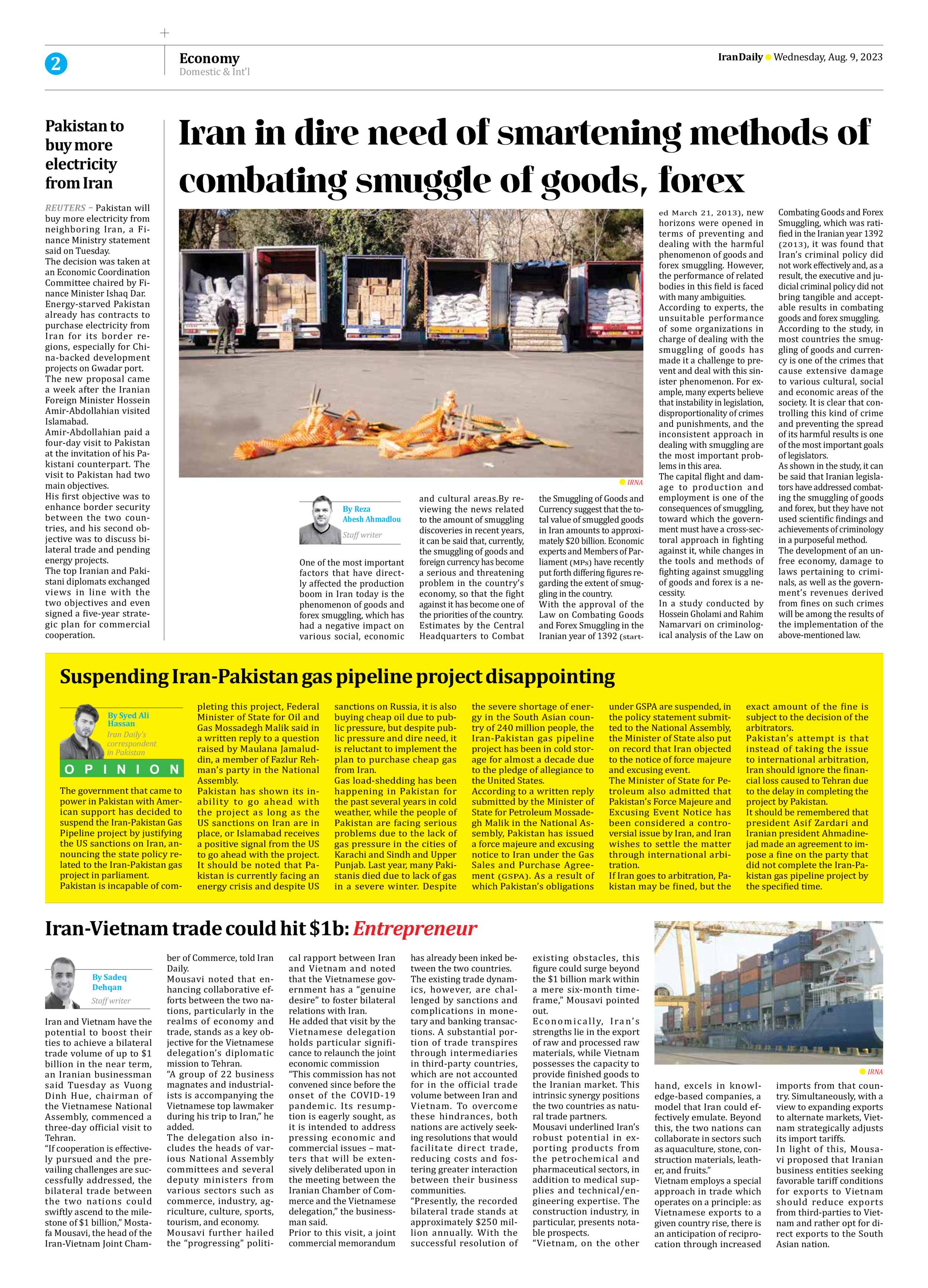
Iran in dire need of smartening methods of combating smuggle of goods, forex
By Reza Abesh Ahmadlou
Staff writer
One of the most important factors that have directly affected the production boom in Iran today is the phenomenon of goods and forex smuggling, which has had a negative impact on various social, economic and cultural areas.By reviewing the news related to the amount of smuggling discoveries in recent years, it can be said that, currently, the smuggling of goods and foreign currency has become a serious and threatening problem in the country’s economy, so that the fight against it has become one of the priorities of the country.
Estimates by the Central Headquarters to Combat the Smuggling of Goods and Currency suggest that the total value of smuggled goods in Iran amounts to approximately $20 billion. Economic experts and Members of Parliament (MPs) have recently put forth differing figures regarding the extent of smuggling in the country.
With the approval of the Law on Combating Goods and Forex Smuggling in the Iranian year of 1392 (started March 21, 2013), new horizons were opened in terms of preventing and dealing with the harmful phenomenon of goods and forex smuggling. However, the performance of related bodies in this field is faced with many ambiguities.
According to experts, the unsuitable performance of some organizations in charge of dealing with the smuggling of goods has made it a challenge to prevent and deal with this sinister phenomenon. For example, many experts believe that instability in legislation, disproportionality of crimes and punishments, and the inconsistent approach in dealing with smuggling are the most important problems in this area.
The capital flight and damage to production and employment is one of the consequences of smuggling, toward which the government must have a cross-sectoral approach in fighting against it, while changes in the tools and methods of fighting against smuggling of goods and forex is a necessity.
In a study conducted by Hossein Gholami and Rahim Namarvari on criminological analysis of the Law on Combating Goods and Forex Smuggling, which was ratified in the Iranian year 1392 (2013), it was found that Iran’s criminal policy did not work effectively and, as a result, the executive and judicial criminal policy did not bring tangible and acceptable results in combating goods and forex smuggling.
According to the study, in most countries the smuggling of goods and currency is one of the crimes that cause extensive damage to various cultural, social and economic areas of the society. It is clear that controlling this kind of crime and preventing the spread of its harmful results is one of the most important goals of legislators.
As shown in the study, it can be said that Iranian legislators have addressed combating the smuggling of goods and forex, but they have not used scientific findings and achievements of criminology in a purposeful method.
The development of an unfree economy, damage to laws pertaining to criminals, as well as the government’s revenues derived from fines on such crimes will be among the results of the implementation of the above-mentioned law.







